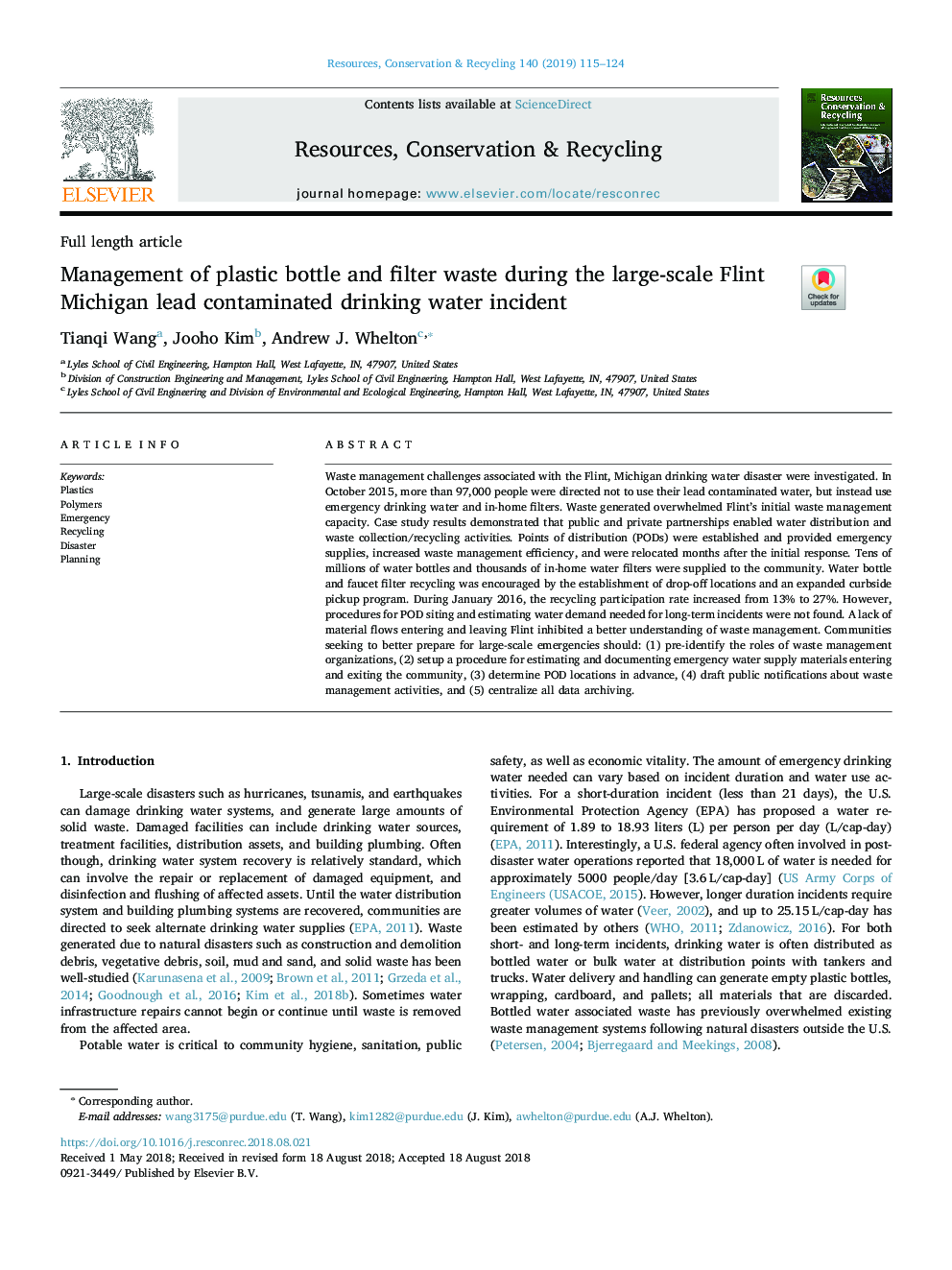| کد مقاله | کد نشریه | سال انتشار | مقاله انگلیسی | نسخه تمام متن |
|---|---|---|---|---|
| 11027498 | 1666270 | 2019 | 10 صفحه PDF | دانلود رایگان |
عنوان انگلیسی مقاله ISI
Management of plastic bottle and filter waste during the large-scale Flint Michigan lead contaminated drinking water incident
دانلود مقاله + سفارش ترجمه
دانلود مقاله ISI انگلیسی
رایگان برای ایرانیان
کلمات کلیدی
موضوعات مرتبط
مهندسی و علوم پایه
مهندسی انرژی
انرژی های تجدید پذیر، توسعه پایدار و محیط زیست
پیش نمایش صفحه اول مقاله

چکیده انگلیسی
Waste management challenges associated with the Flint, Michigan drinking water disaster were investigated. In October 2015, more than 97,000 people were directed not to use their lead contaminated water, but instead use emergency drinking water and in-home filters. Waste generated overwhelmed Flint's initial waste management capacity. Case study results demonstrated that public and private partnerships enabled water distribution and waste collection/recycling activities. Points of distribution (PODs) were established and provided emergency supplies, increased waste management efficiency, and were relocated months after the initial response. Tens of millions of water bottles and thousands of in-home water filters were supplied to the community. Water bottle and faucet filter recycling was encouraged by the establishment of drop-off locations and an expanded curbside pickup program. During January 2016, the recycling participation rate increased from 13% to 27%. However, procedures for POD siting and estimating water demand needed for long-term incidents were not found. A lack of material flows entering and leaving Flint inhibited a better understanding of waste management. Communities seeking to better prepare for large-scale emergencies should: (1) pre-identify the roles of waste management organizations, (2) setup a procedure for estimating and documenting emergency water supply materials entering and exiting the community, (3) determine POD locations in advance, (4) draft public notifications about waste management activities, and (5) centralize all data archiving.
ناشر
Database: Elsevier - ScienceDirect (ساینس دایرکت)
Journal: Resources, Conservation and Recycling - Volume 140, January 2019, Pages 115-124
Journal: Resources, Conservation and Recycling - Volume 140, January 2019, Pages 115-124
نویسندگان
Tianqi Wang, Jooho Kim, Andrew J. Whelton,